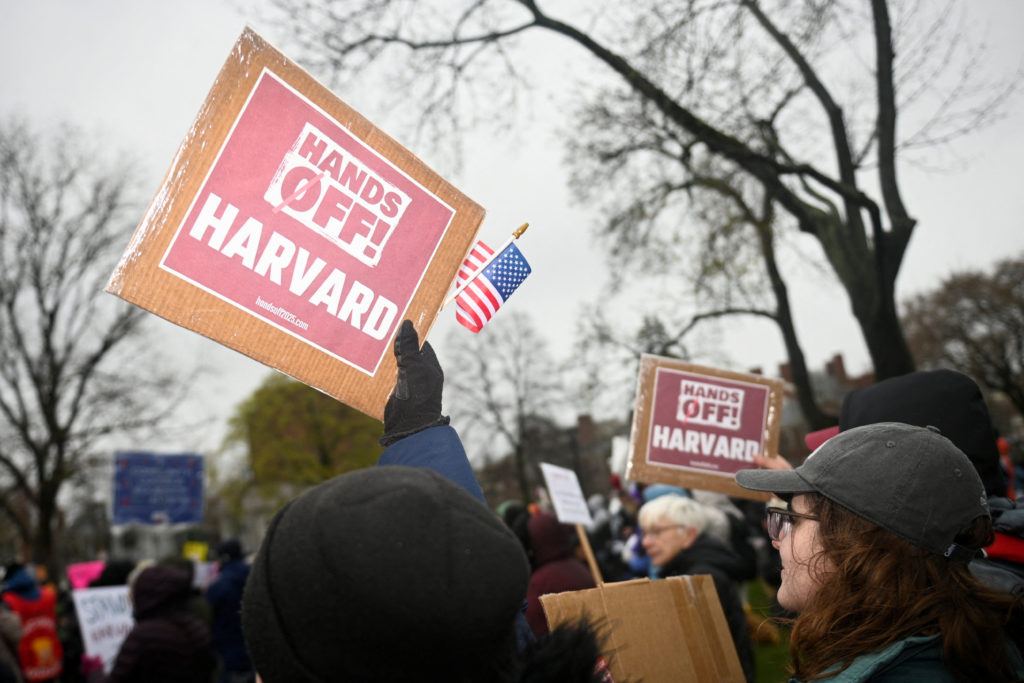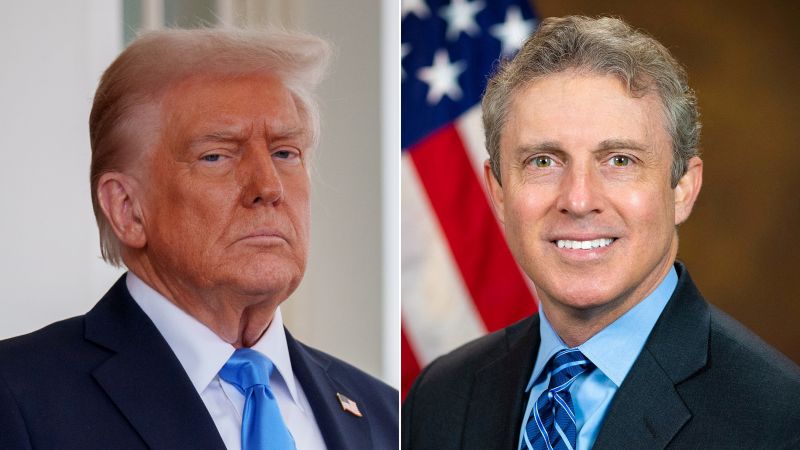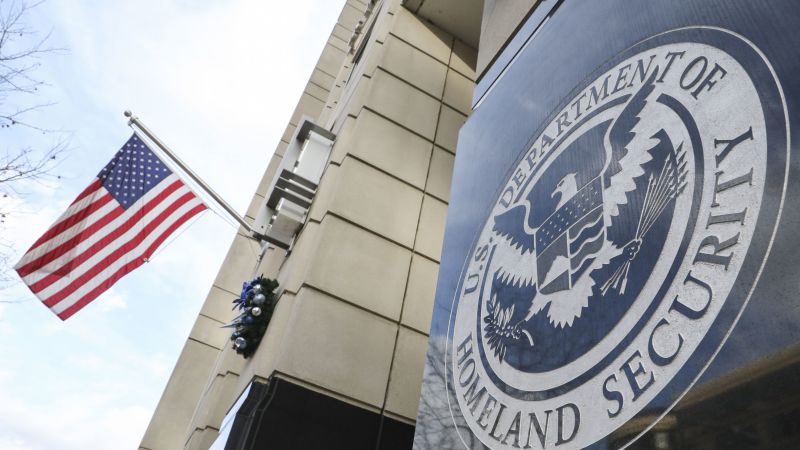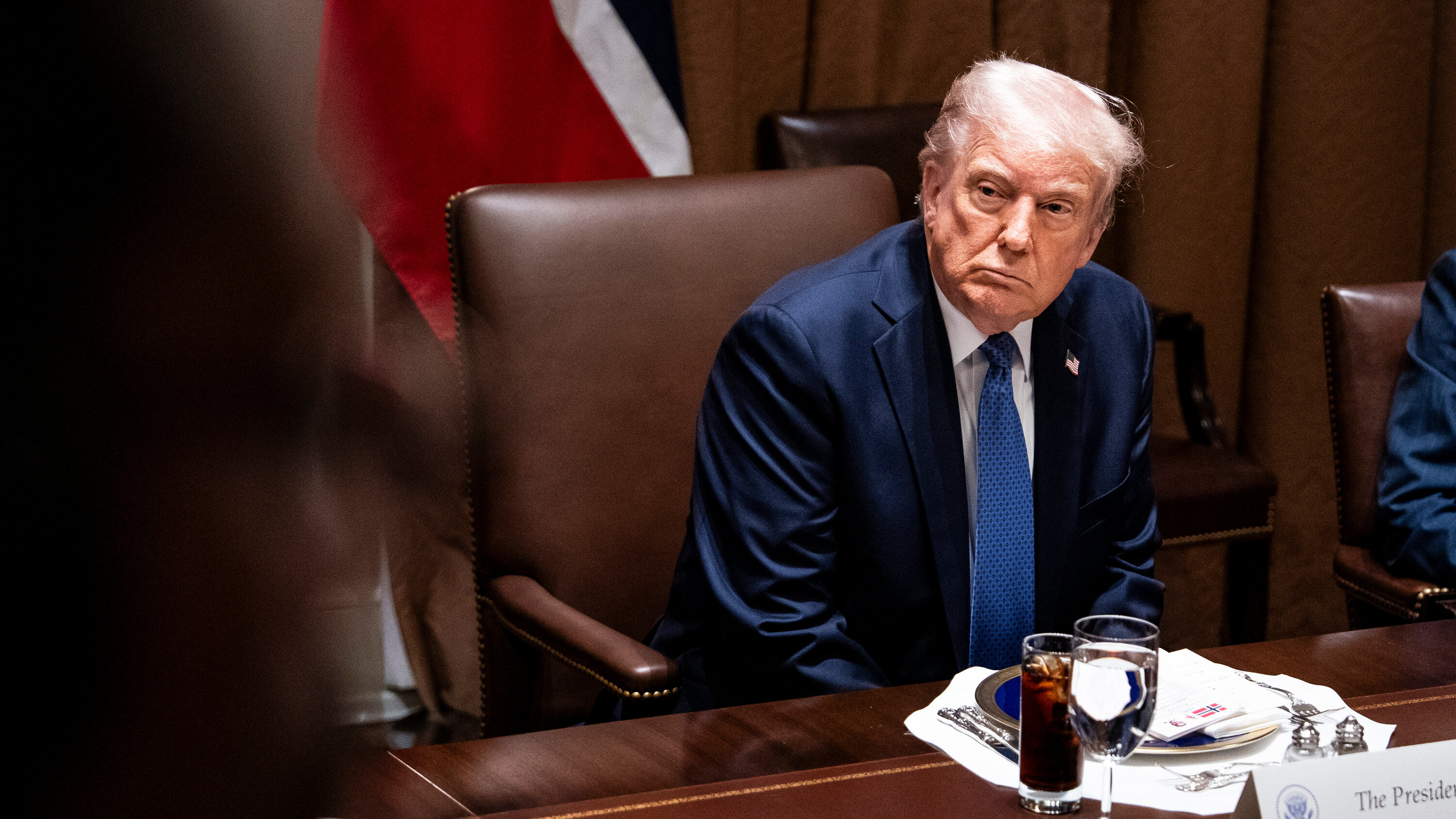Harvard Under Siege: Trump's Double-Pronged Attack on Campus Privileges
Politics
2025-04-17 23:07:24Content

In an escalating confrontation, the Trump administration has intensified its legal and financial pressure on Harvard University, signaling potential severe consequences for the prestigious institution. The administration is now threatening to strip Harvard of its ability to host international students while simultaneously exploring the possibility of revoking its long-standing tax-exempt status.
This aggressive stance marks a dramatic escalation in the ongoing conflict between the federal government and one of America's most renowned academic institutions. President Trump has personally championed the move, suggesting that Harvard's policies and practices are at odds with the administration's immigration and educational priorities.
The dual-pronged approach—challenging both Harvard's international student program and its tax exemption—represents an unprecedented level of governmental intervention in higher education. The threats could have far-reaching implications not just for Harvard, but potentially for other elite universities across the United States.
As the situation develops, academic leaders, legal experts, and international education advocates are closely monitoring the potential fallout from this high-stakes confrontation between the Trump administration and one of the world's most prestigious universities.
Harvard Under Siege: The High-Stakes Showdown Between Academia and Political Power
In an unprecedented escalation of tensions between higher education and political leadership, the ongoing conflict between the Trump administration and Harvard University has reached a critical juncture, threatening to fundamentally reshape the landscape of international academic engagement and institutional autonomy.A Battle of Institutional Survival and Political Leverage
The Institutional Pressure Campaign
The Trump administration's aggressive stance against Harvard represents a multifaceted strategy designed to challenge the university's operational independence and international student policies. By simultaneously threatening to revoke tax-exempt status and potentially restricting international student visas, the administration is deploying a sophisticated political pressure mechanism that could have far-reaching consequences for academic institutions nationwide. The proposed actions signal a profound transformation in the relationship between governmental authority and educational institutions. Harvard, long considered a bastion of academic excellence and global intellectual exchange, now finds itself at the epicenter of a complex political confrontation that extends beyond traditional academic boundaries.International Student Dynamics and Institutional Vulnerability
The potential withdrawal of Harvard's ability to host international students represents a strategic maneuver with significant implications for global educational ecosystems. International students contribute not only substantial economic value but also represent critical cultural and intellectual exchange mechanisms that have historically defined American higher education's global leadership. By targeting Harvard's international student infrastructure, the administration is effectively challenging the university's global connectivity and potentially undermining decades of established academic diplomacy. The proposed restrictions could create unprecedented disruptions in academic mobility, research collaboration, and cross-cultural understanding.Legal and Political Ramifications
The threat to Harvard's tax-exempt status introduces a complex legal and constitutional dimension to the conflict. Such an action would not only represent an extraordinary governmental intervention but potentially challenge fundamental principles of academic freedom and institutional autonomy. Legal experts suggest that the proposed measures could trigger extensive litigation, potentially establishing precedent-setting legal challenges that might reshape the relationship between governmental authorities and educational institutions. The broader implications extend far beyond Harvard, potentially influencing how universities nationwide navigate increasingly politicized academic environments.Economic and Reputational Consequences
Harvard's potential loss of tax-exempt status and international student hosting capabilities could trigger substantial economic repercussions. The university's annual budget, significantly dependent on international student enrollment and philanthropic contributions, might face unprecedented financial strain. Moreover, the reputational damage could extend globally, potentially diminishing Harvard's attractiveness to international scholars and students. The institution's long-standing reputation as a premier global academic destination might be fundamentally challenged by these governmental interventions.Broader Educational Policy Implications
The confrontation between the Trump administration and Harvard serves as a microcosm of larger tensions surrounding educational policy, immigration, and institutional autonomy. The actions represent a significant departure from traditional governmental approaches to higher education, signaling a more interventionist and politically charged environment. Academic institutions across the United States are closely monitoring these developments, recognizing that the outcome could establish critical precedents for institutional governance, international engagement, and academic freedom in an increasingly complex political landscape.RELATED NEWS
Politics

Breaking: Canine Controversy Erupts as DOGE Seeks Prime Political Position
2025-02-24 21:22:54







